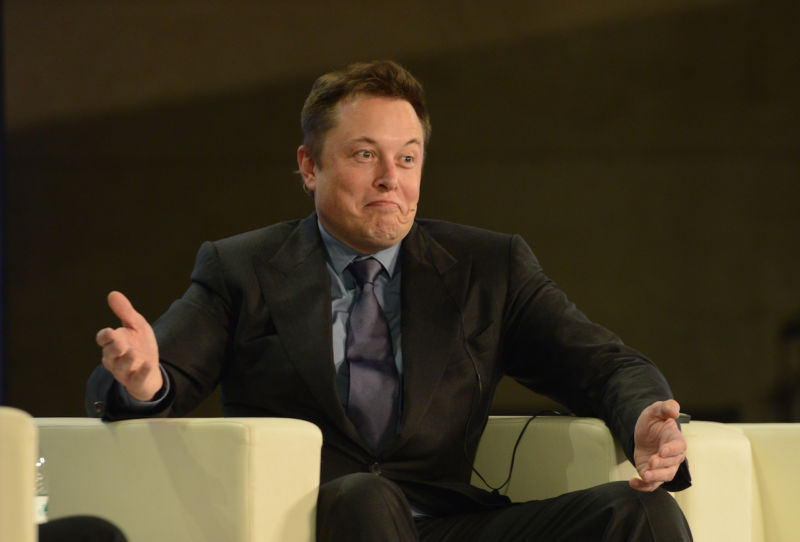
The Securities and Exchange Commission heaped scorn on Elon Musk and his legal arguments in a Monday legal filing. The agency is asking New York federal Judge Alison Nathan to hold Musk in contempt for tweeting a projection of 2019 vehicle output without first getting the tweet approved by Tesla’s lawyers.
Musk has been battling the SEC since last August, when he tweeted that he had “funding secured” to take Tesla private. That turned out to be untrue, and it’s illegal to publish inaccurate information that has the potential to move markets. Under the terms of a September deal, Musk paid a $20 million fine and gave up his role as the chairman of Tesla’s board (Tesla paid an additional $20 million).
Musk also promised to have Tesla lawyers review future tweets that could contain information that is “material”—that is, significant enough to affect the price of Tesla’s stock.
“Musk’s unchecked and misleading tweets about Tesla are what precipitated the SEC’s charges, and the pre-approval requirement was designed to protect against reckless conduct by Musk going forward,” the SEC wrote on Monday.
SEC says Musk hasn’t tried to comply with the pre-approval requirement
Last month, Musk tweeted out a prediction that Tesla would produce “around 500k” cars in 2019. Hours later, Musk followed up with another tweet clarifying that Tesla was aiming to achieve an annualized production rate of 500,000 cars (10,000 per week) but was projecting 400,000 cars produced during the 2019 calendar year.
Not only was Musk’s “around 500k” tweet not approved by Tesla’s lawyers, but the SEC discovered that “Musk had not sought pre-approval for a single one of the numerous tweets about Tesla he published in the months since the court-ordered pre-approval policy went into effect,” the agency wrote on Monday. The SEC is asking Judge Nathan to hold Musk in contempt.
In a legal filing last week, Musk’s lawyers insisted that he’d done nothing wrong. The settlement required Musk to seek approval for tweets that “contain or reasonably could contain” material information about Tesla. Musk argued that he had used his own judgment to determine that his tweets did not contain material information—and that therefore the tweets didn’t require review by Tesla’s legal department.
But the SEC argues that allowing Musk to unilaterally decide which tweets are material before submitting them for review “renders [the] pre-approval requirement meaningless.”
Indeed, the SEC noted, Musk tweeted about a number of other seemingly material topics without seeking pre-approval. Recent tweet topics have included “vehicle tax credits and pricing,” “plans for expansion of charging stations internationally,” “construction and production plans for a new Shanghai factory,” “whether Tesla plans to phase out its Model S and Model X vehicles in the future,” and others.
In the SEC’s view, all of these topics were potentially significant for Tesla’s shareholders, and hence Musk should have sought approval from Tesla’s lawyers before tweeting about them.
Not material
Musk argued that his claim that Tesla would produce “around 500k [cars] in 2019” wasn’t material, because forward-looking, speculative statements are generally considered to be non-material. The SEC rejected that claim. “Musk’s contention—that the potential size of a car company’s production for the year could not reasonably be material—borders on the ridiculous,” the agency wrote.
Also on Monday, a lawyer for Musk responded to the SEC’s filing by requesting permission to file another brief in response with a proposed deadline of this Friday. After that, we may finally get a chance to hear from Judge Nathan—and we’ll find out whether she’s as frustrated with Musk’s behavior as the SEC is.
https://arstechnica.com/?p=1476003

